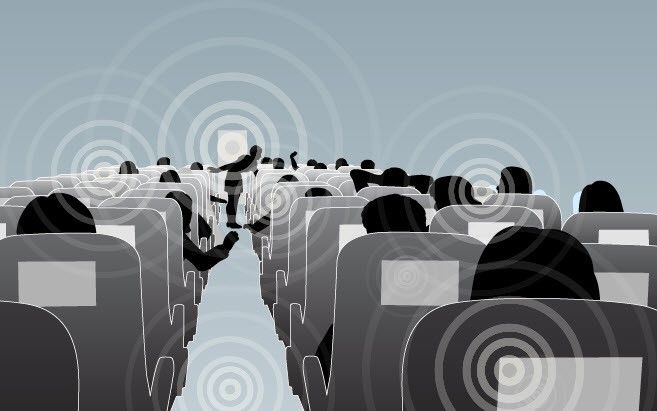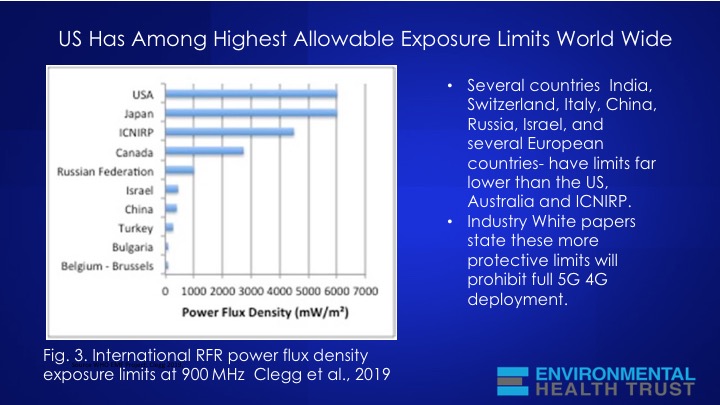AT&T and Verizon will delay 5G expansion in Comply with Request from FAA and Transportation Department
Opposition to 5G technology has been ongoing for years due to various significant risks associated with it.

AT&T and Verizon won’t start rolling out their C-band 5G service on January 5th after all. The carriers have agreed to comply with a request from the Federal Aviation Administration and the Transportation Department to push back their 5G expansion by two more weeks. Authorities asked the companies for extra time to investigate concerns regarding possible interference with aircraft systems and electronics.
Both AT&T and Verizon were supposed to to roll out their potentially faster C-band service using newly purchased frequencies back in December, but they held off on the expansion as requested by the Federal Aviation Administration. Airlines and aircraft manufacturers are worried that the new frequencies are too close to those used by airplanes’ radar altimeter, which provides data on the distance between the plane and the ground. Interferences could then lead to unsafe landings. Wireless industry giants argue, however, that the C-band service’s powers are low enough and that the gap in frequencies is large enough to prevent interference.
Shortly before the supposed January 5th rollout, the agencies asked the carriers for a delay of two more weeks to look into the issue. They initially rejected the authorities’ call for an additional delay, issuing a joint letter that says honoring the request would be to the “detriment” of customers. The carriers tried to negotiate a compromise instead and told authorities that they’re open to a six-month pause in deployment near some airports.
It’s unclear what changed the companies’ minds, but both have agreed to put a pause on their plans for now.
A Verizon spokesperson told Engadget in a statement:
“We’ve agreed to a two-week delay which promises the certainty of bringing this nation our game-changing 5G network in January, delivered over America’s best and most reliable wireless network.”
An AT&T spokesperson sent us a similar response:
“At Secretary Buttigieg’s request, we have voluntarily agreed to one additional two-week delay of our deployment of C-Band 5G services. We also remain committed to the six-month protection zone mitigations we outlined in our letter. We know aviation safety and 5G can co-exist and we are confident further collaboration and technical assessment will allay any issues.”

Other considerable risks associated with 5G include
- Cybersecurity risks (see 1, 2, 3, 4)
- Environmental risks (see 1, 2, 3, 4, 5, 6)
- Health risks (see 1, 2, 3, 4, 5)
- Privacy risks (see 1, 2, 3)
- Weather forecasting satellite interference risks
- Utility infrastructure interference risks
Studies have also determined that 4G is still better, more reliable, and safer than 5G (see 1, 2, 3, 4, 5, 6, 7).
Opposition and warnings have slowed and/or stopped 5Gdeployment in some places but not others. Since 2017 doctors and scientists have asked for moratoriums on Earth and in space (see 1, 2) and the majority of scientists oppose deployment. Since 2018 there have been reports of people and animals experiencing symptoms and illnesses after 5G was activated (see 1, 2, 3, 4). Some blame COVID-19 on 5G deployment while others do not. Regardless, research has determined that there are health risks associated with 5G exposure as well as exposure to 4G and other sources of wireless Wi-Fi radiation (see 1, 2) and Electromagnetic Fields (aka “Electrosmog”).
Activist Post reports regularly about 5G and other unsafe technology. For more information visit our archives and the following websites.
- Americans for Responsible Technology
- 5GFree
- 5G Information
- WhatIs5G.info
- 5G Space Appeal
- Stop 5G International
- Wireless Information Network
- Electromagnetic Radiation Safety
- Environmental Health Trust
- Physicians for Safe Technology
- Scientists4WiredTech
Read the full article at the original website.
